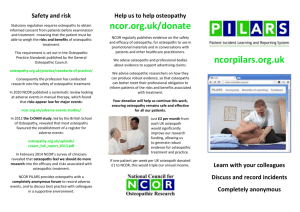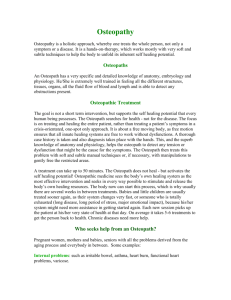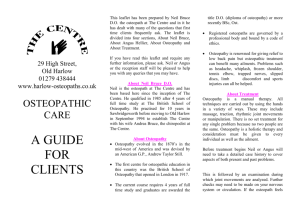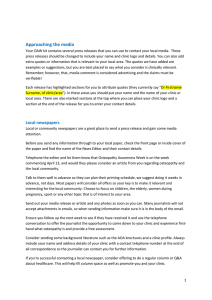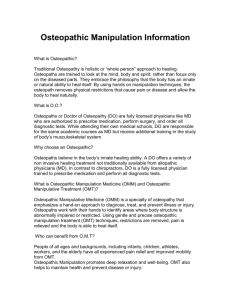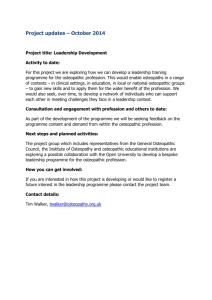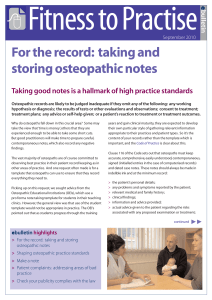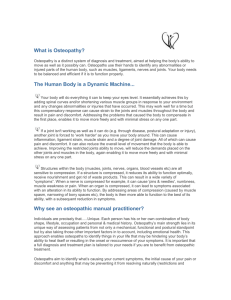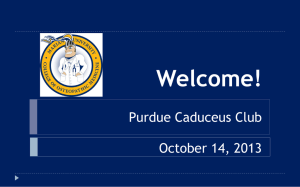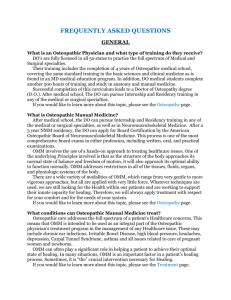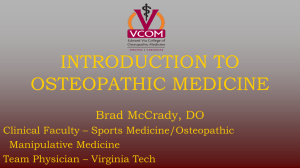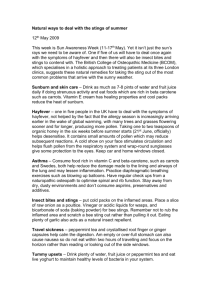Gerry McGivern (Warwick - Professional Standards Authority
advertisement
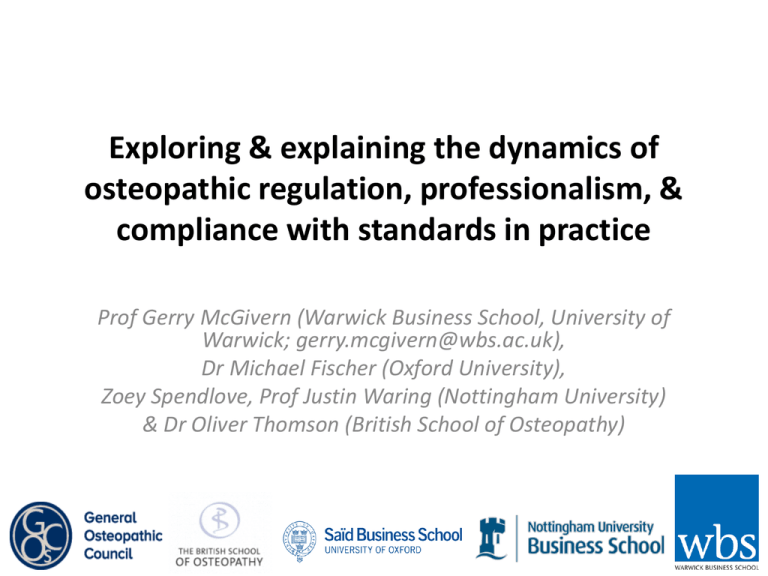
Exploring & explaining the dynamics of osteopathic regulation, professionalism, & compliance with standards in practice Prof Gerry McGivern (Warwick Business School, University of Warwick; gerry.mcgivern@wbs.ac.uk), Dr Michael Fischer (Oxford University), Zoey Spendlove, Prof Justin Waring (Nottingham University) & Dr Oliver Thomson (British School of Osteopathy) Background research on clinical regulation • Previous ESRC/ GMC funded research on regulatory transparency in medicine and psychological therapies • McGivern, G. & Fischer, M.D. 2012. ‘Reactivity & reactions to regulatory transparency in medicine, psychotherapy & counselling. Social Science & Medicine, 74 (3) p286-296) – Regulators had little understanding of the effects of regulation in practice – Importance of ‘formative spaces’ within regulatory processes – Non-rational narratives & anxieties shaping professionals’ defensive attitudes towards regulation in a perceived ‘inquisition’ like wider environment – Echoed earlier study on consultant appraisal: McGivern, G. & Ferlie, E. 2007. Playing Tick Box Games: Interrelating Defences in Professional Appraisal. Human Relations, 60 (9) p1361-1385 The Francis Inquiry • Mid-Staffs/Francis-report: – Focus on superficial compliance with standards/numbers – Professional disengagement; ‘kept their heads down’ – ‘There is a tendency when a disaster strikes to try to seek out someone who can be blamed… we have still not managed to move successfully away from the culture of blame which … Donaldson, in Organisation with a Memory and.. the Bristol Inquiry, were so keen to banish… blame will perpetuate the cycle of defensiveness, concealment, lessons not being identified and further harm.’ (Francis, 2013: 35) – Call for culture change: Professionalism & internalisation of standards The GOsC-funded research • Current General Osteopathy Council (GOsC) funded research • Exploring osteopaths’ & other regulatory stakeholders’ perceptions & experience of regulation in practice • Explaining factors that encourage or inhibit compliance with osteopathic standards & regulation • Links to osteopathic professionalism • Aim to help GOsC understand how it can encourage compliance with osteopathic standards & thus support safe & high quality osteopathic practice. Why is osteopathy interesting? • • • • • • Protected professional title (4800 UK osteopaths) No agreed definition of osteopathy Limited evidence-based Communication/professionalism important Independent professionals (sole; private practice) GOsC revalidation pilot: reflective discussion part of GOsC fitness to practice regulatory process (following PSA ‘right-touch’ regulation, 2012) What are we doing? • Literature review: (1) osteopathy & (2) clinical regulation • Qualitative semi-structured interviews (n=50; on-going) – – – – – Representative range of osteopaths; Representatives of the osteopathic educational institutions; Public/patient representatives; Regulators (e.g. HCPC, GOsC, General Chiropractic Council); Other stakeholders affecting the wider regulatory climate (e.g. lawyers, journalists, policy-makers, politicians) • Online survey of 4800 GOsC-registered Osteopaths (June) • Stakeholder validation and feedback workshop Where have we got to? • Still early in the project – Literature reviews: (1) osteopathy and (2) regulation/revalidation/FTP; – Preliminary review of public FTP information and GOsC revalidation pilot findings – Ethical approval – Sampling framework – Interview questions 2 pilot interviews done; – More interviews arranged • No results to report yet (available end of 2014)
